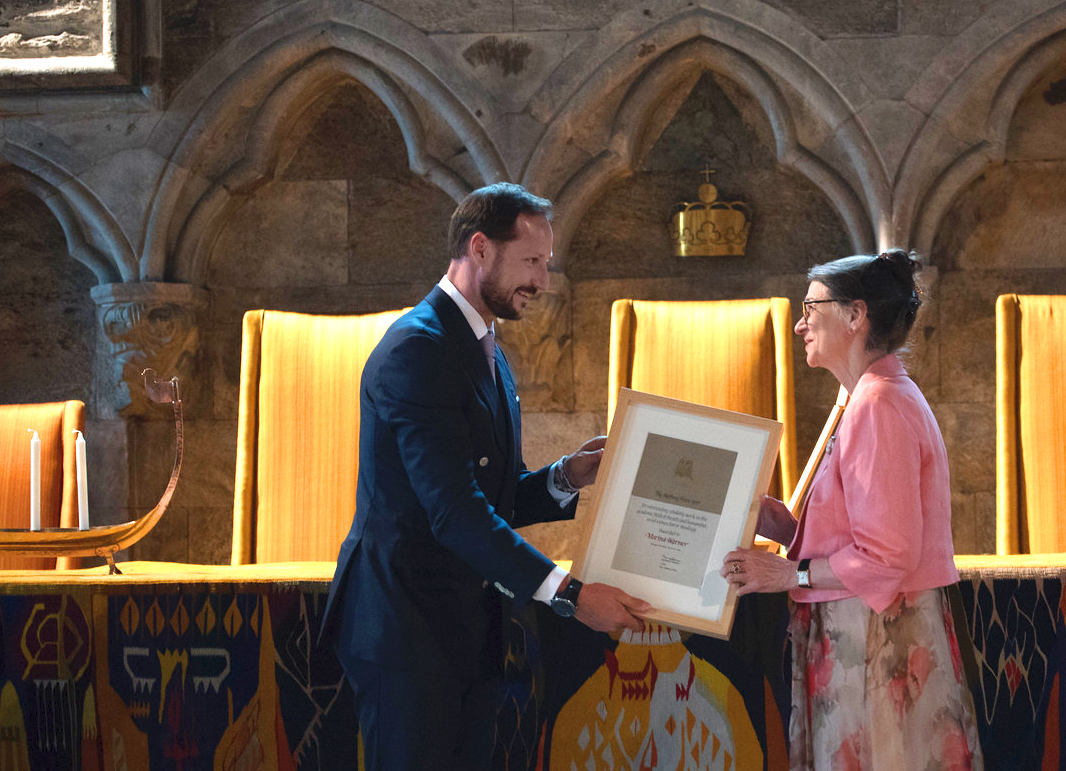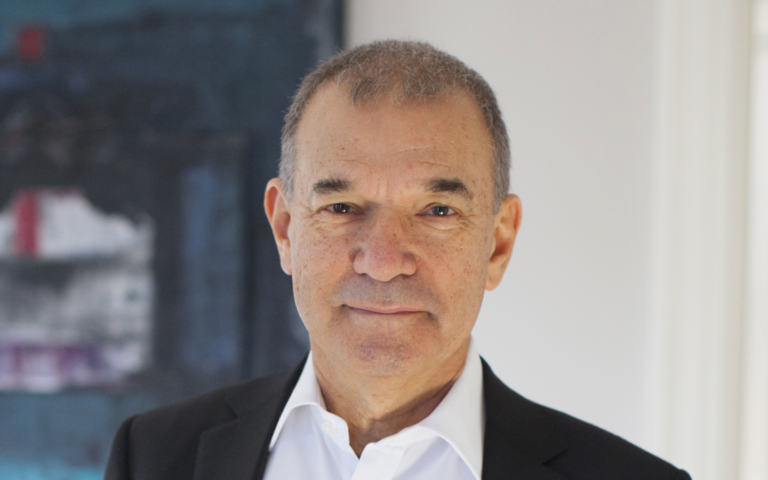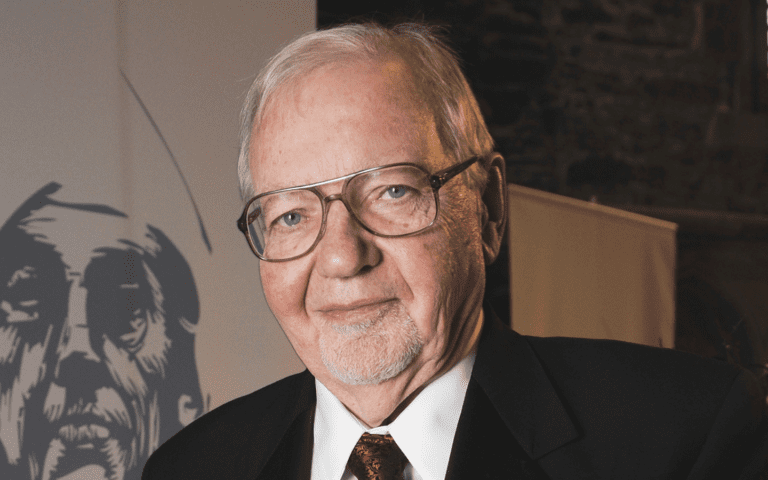
The Holberg Prize was today officially awarded to British author, scholar and critic Marina Warner by H.R.H. the Crown Prince of Norway.
In a prestigous award ceremony in the Haakon´s Hall, the King´s banqueting hall, Dame Marina Warner today received the international research award of 4.5 million NOK (approximately €538,000 or $735,000).
– The Holberg Prize is a most unexpected honour and I thank you for this generosity and recognition from the bottom of my heart, said the 2015 Laureate.
Imagination can save lives
Dame Marina Warner receives the prize for her work on analyzing fairy tales and myths, and how these reflect their time and place especially in relation to gender roles and culture.
– From my point of view, the idea that the imagination can save your life – Scheherazade´s strategy – rightly places the emphasis on finding the myth to live by. The struggle for common ground, justice, co-existence without murderous strife needs words – not the single scripts of the fundamentalists of all kinds, but the complex, patterned, nuanced and yet no less enthralling literature made by anonymous voices in the past and authors today, the Laureate said in her speech. Warner wishes to spend part of her prize money on cultural preservation amongst refugees and migrants.
Roots of international conflicts
Today, the Nils Klim Prize for young scholars below the age of 35 was also awarded by the Norwegian Minister of Education and Research to Danish EU-scholar Rebecca Adler-Nissen during the same ceremony. Adler-Nissen received the prize for integrating sociology into the predominantly rationalist field of international relations.
– Today, the world is struggling with a range of international conflicts and we urgently need to address the roots of these conflicts. In the coming years, I hope to advance our understanding of diplomacy together with colleagues here and across the world. I will focus on how diplomacy´s focus on discretion and confidentiality can work in the age of constant media attention and communication. This question is important because it concerns, most fundamentally, the risk of conflict and possibility of peace, said Adler-Nissen in her speech.
Last edited:
Published:
Related content

“Everyone dreams at night”: Interview with Stephen Greenblatt
What are the paths and life events that have led 2016 Holberg Laureate Professor Stephen Greenblatt to where he is today? Where will he go from here? How will the humanities survive the current crisis? Those are some of the questions Greenblatt answers in this exclusive interview.

About Fredric R. Jameson
Fredric R. Jameson (born in 1934 in Cleveland, Ohio) is one of today's most important and most influential cultural theorists. He has done more for the contextual study of culture than any other living scholar. Over the past four decades, he has developed a richly nuanced theory of how modern culture – in particular, literature, painting, cinema, and architecture – relates to social and economic developments.

About Ian Hacking
Ian Hacking (born in 1936 in Vancouver, British Columbia) is one of the world's leading scholars in the fields of philosophy and history of science. He has made important contributions to areas as diverse as the philosophy and history of physics; the understanding of the concept of probability; the philosophy of language; and the philosophy and history of psychology and psychiatry.

